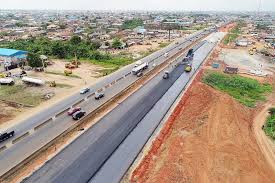Nigeria signs agreement with Siemens to increase grid capacity to 12,000mw within three years

Nigeria signs agreement with Siemens to increase grid capacity to 12,000mw within three year
President Bola Tinubu has signed an agreement with Olaf Scholz, Chancellor of Germany, to improve Nigeria’s grid capacity and improve electricity supply in the country.
The agreement aimed at accelerating the Presidential Power Initiative (PPI) was signed on Friday by Kenny Anuwe, CEO of FGN Power Company, and Nadja Haakansson, Siemens Energy managing director for Africa, on the sidelines of the ongoing COP28 in Dubai.
The PPI project agreement was first entered in 2019 and was to be implemented in three phases including delivering an additional 2GW to the grid to achieve improved grid stability and reliability; bringing the system’s operational capacity to about 11G, while also increasing the system’s capacity to 25GW.
Speaking to journalists after the signing, Adebayo Adelabu, minister of power, said the agreement will see to the end-to-end modernisation and expansion of Nigeria’s electric power transmission grid.
Adelabu said different factors including COVID-19 had affected the progress of the project after its initial signing in 2019 but that Nigeria is now ready to proceed and deliver.
He said Siemens Energy has already supplied the necessary equipment needed to execute the project and within 12 to 24 months the government will expand the grid capacity from 6,000 to 8,000 megawatts, with hopes to get to 12,000mw in three years.
“The project is to be financed by Nigeria’s export credit facilities that are being provided by a couple of German banks to Nigeria,” Adelabu said.
“As it is, I might be able to say how much it is going to cost the country, the original agreement we had was for $2.3 billion but what we have executed to date is just in the region of $60 million which has to do with the importation of the 10 transformers and the 10 power substations which Siemens have delivered to the country. They have been commissioned and we are in the process of installation of these transformers.
“The project is in phases, we have the short-term phase, we have the medium term and we have the long-term phase. The short-term phase is going to be between 12 to 24 months where we are actually hoping to improve or expand the grid capacity from 6,000 to 8,000.
“And I believe that the second phase which is going to take us about three to four years, we should be able to improve the grid capacity to 12,000 megawatts.”
Also speaking, Anuwe gave details of Siemens Energy’s equipment worth over €63 million delivered to Nigeria since the project commenced, including 10 units of 132/33KV mobile substations; 3 units of 75/100MVA transformers, and 7 units of 60/66MVA transformers, currently being installed by FGN Power Company at various sites across Nigeria.
The project will also focus on identified load demand centres with a particular emphasis on economic and industrial hubs nationwide; execution of new 330kV and 132/33KV substations in target load centres with economic priority, in addition to thousands of kilometres of overhead transmission lines to connect new substations with existing ones.











